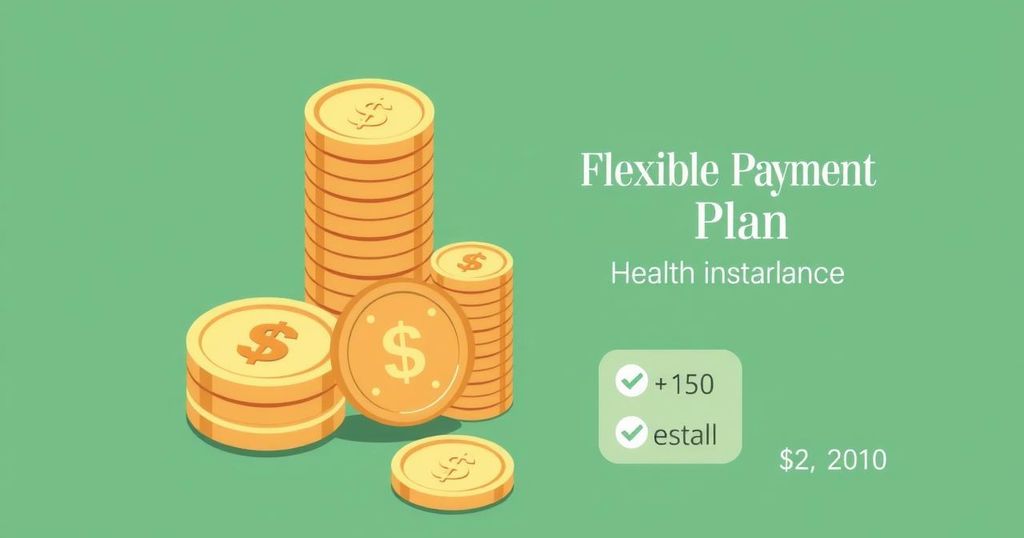President Ruto Introduces New SHA Payment Plan for Informal Workers
President William Ruto has launched the Lipa Polepole payment plan for the Social Health Authority (SHA), allowing flexible contributions for Kenyans in the informal sector. The initiative aims to ease financial burdens and improve health coverage access. The World Bank has raised concerns over the funding viability of the SHIF, urging a re-evaluation of health programs amidst financial constraints.
President William Ruto has announced a new payment scheme called Lipa Polepole for the Social Health Authority (SHA) insurance contributions aimed at Kenyans employed informally. This announcement was made during the 62nd Madaraka Day celebrations in Homa Bay. The new initiative will allow Kenyans to pay their yearly premiums in installments, offering more flexibility for individuals in the informal sector.
Ruto stated, “To address persistent challenges such as irregular premium payments, especially among the informal sector, the government of Kenya is introducing an inclusive payment solution known as lipa SHA polepole.” He emphasized that this approach would help families manage their payments more effectively.
The President explained that this scheme will enable residents to remit their SHA contributions in installments tailored to their financial situations. “This initiative will enable Kenyans to remit their annual SHA contributions through flexible, manageable installments, whether monthly, weekly, or even daily, based on their financial abilities,” he elaborated.
The payment plan was developed through collaboration among several entities, including the Ministries of Health and Cooperatives, along with financial and mobile network providers, thanks to the Hustler Fund. This partnership aims to create a more accessible health coverage system for many Kenyans.
At present, Ruto noted that 50,000 individuals are already registered with the SHA, which has provided full coverage for treatment to a staggering 4.5 million Kenyans. This expansion of the health coverage system is crucial, especially in light of recent critiques.
Last week, the World Bank issued a report emphasizing the need for the Kenyan government to revisit its Universal Health Coverage (UHC) initiatives, which encompasses the Social Health Insurance Fund (SHIF). Among various concerns, the report highlighted that low-income individuals in the informal sector are particularly vulnerable to financial strain caused by these insurance contributions.
The latest World Bank report, released on May 27 and titled Public Finance Review (PFR), urged the government to rethink both the rollout and funding strategies for the health coverage program. The financial burden on the informal sector is a significant issue, as the bank warned of funding constraints anticipated from SHIF implementation,
The report speculated that the scheme might only generate Ksh67 billion annually, falling significantly short of its Ksh157 billion goal. Further recommendations urged the government to exempt low-wage earners in the formal sector from these contributions, suggesting that collections focus on formal employment while ensuring that informal workers and vulnerable groups receive direct subsidies to support equitable access to healthcare.
In conclusion, the introduction of the Lipa Polepole scheme represents a significant step in addressing the unique challenges faced by Kenyans working in informal sectors regarding health insurance contributions. The government’s collaborative approach aims to enhance access to healthcare by offering flexible payment options. However, external pressures from the World Bank indicate a need for broader reassessment of the funding and implementation of health initiatives to ensure sustainability and equity among all workers.
Original Source: www.kenyans.co.ke




Post Comment